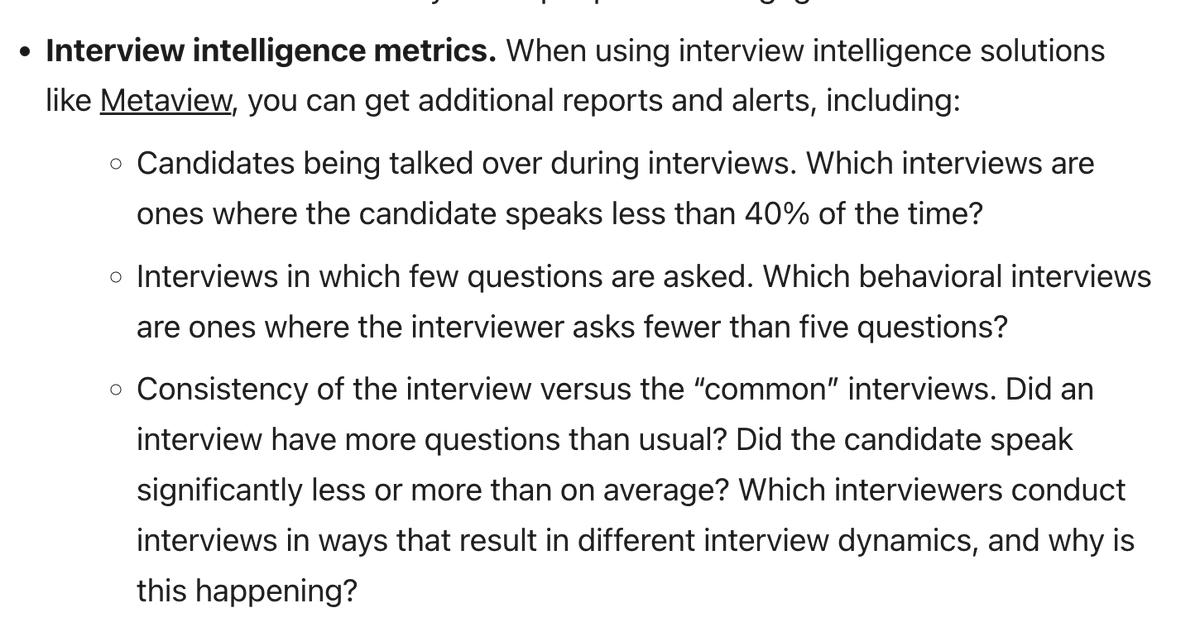
"We’re a company growing rapidly. Our hiring process has been based on intuition so far. What do good hiring processes look like and how do we build them?"
Here's how you can do this. A thread:
Here's how you can do this. A thread:

1. Define the role. Start with the "what" and define the scope of this role. Can you write up a 1, 3, and 6-month plan of what success for this role looks like?
Define "must-have" and "nice to have" requirements. Write it all down. Don't forget to write down the budget as well!
Define "must-have" and "nice to have" requirements. Write it all down. Don't forget to write down the budget as well!
2. The JD. With the role definition ready, you should be able to write an accurate and truthful job description.
Take inspiration from the structure of other JDs you like. Here are a few structure ideas:
wave.com/en/careers/job…
fonoa.com/jobs/senior-ba…

Take inspiration from the structure of other JDs you like. Here are a few structure ideas:
wave.com/en/careers/job…
fonoa.com/jobs/senior-ba…


3. Defining the interview process.
Start with what signals you need to gather to figure out if someone is fit for the role. Then make it clear which signals each interview will collect.
While you could blindly copy Big Tech's 8-step hiring processes... don't! Some inspiration:


Start with what signals you need to gather to figure out if someone is fit for the role. Then make it clear which signals each interview will collect.
While you could blindly copy Big Tech's 8-step hiring processes... don't! Some inspiration:



4. The debrief. How do you make the hiring decision, and who makes it? The hiring manager by themselves? A discussion? A consensus? Are there rules on vetoing?
There are many ways to do it. Decide how you want to do it and make it clear to everyone involved in the loop.
There are many ways to do it. Decide how you want to do it and make it clear to everyone involved in the loop.
5. Calibrating your interview process. How can you increase consistency and reduce bias? A few ideas:
- Document interviews.
- Train interviewers.
- Do shadowing & reverse shadowing.
- Use virtual shadowing + interview intelligence tools like @MetaviewAI
- Document interviews.
- Train interviewers.
- Do shadowing & reverse shadowing.
- Use virtual shadowing + interview intelligence tools like @MetaviewAI
6. Feedback loops. How well is your process working? You won't know if you don't measure.
Things you could measure:
- Hiring funnel & drops between stages
- Close %
- Time to offer accepted
- Candidate feedback & NPS
- Interviewer load
- Sourcing stats
- Interview metrics like:
Things you could measure:
- Hiring funnel & drops between stages
- Close %
- Time to offer accepted
- Candidate feedback & NPS
- Interviewer load
- Sourcing stats
- Interview metrics like:

That's it! You have an interview process in place for *the role you defined* that collects the signals *you need* which is *continuously calibrated* and one that you *iterate on* based on the feedback you measure.
For a longer version, see this article: newsletter.pragmaticengineer.com/p/hiring-softw…
For a longer version, see this article: newsletter.pragmaticengineer.com/p/hiring-softw…
• • •
Missing some Tweet in this thread? You can try to
force a refresh



